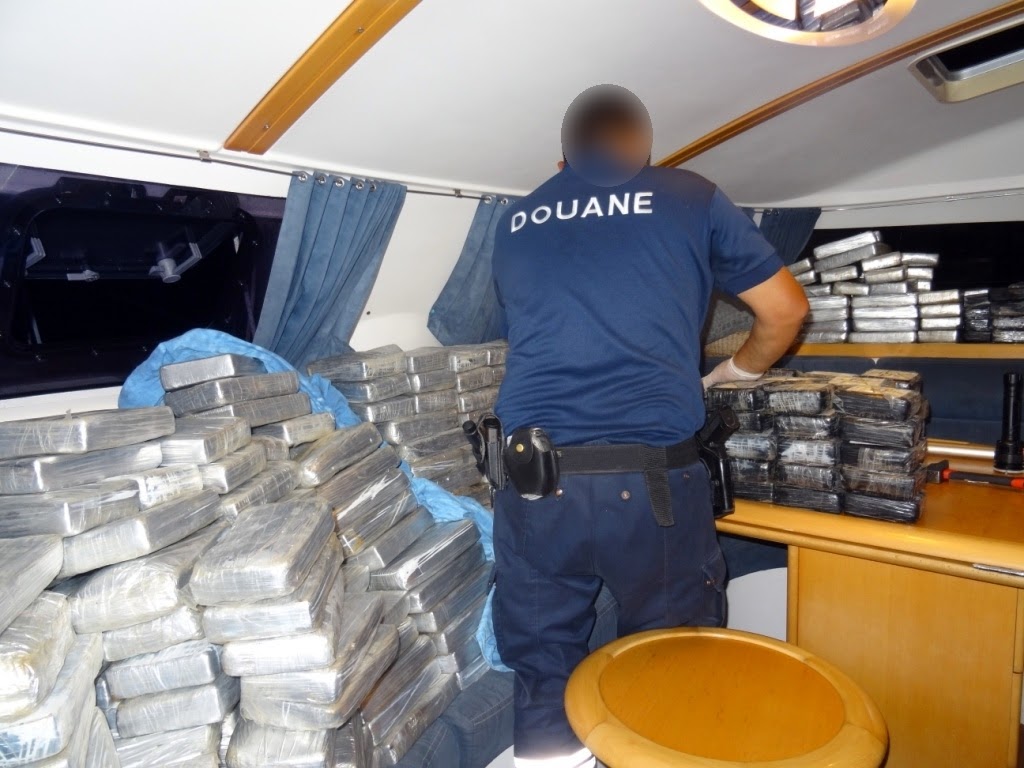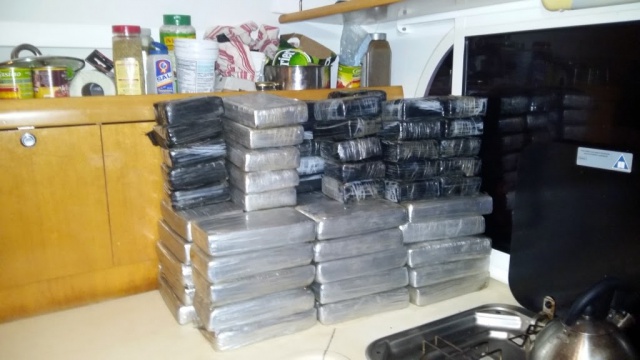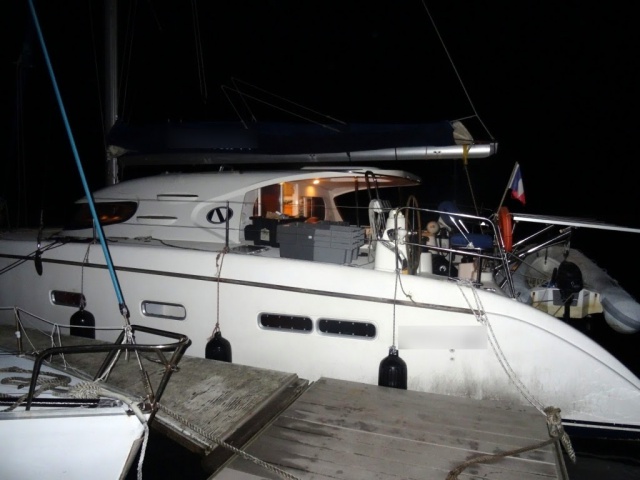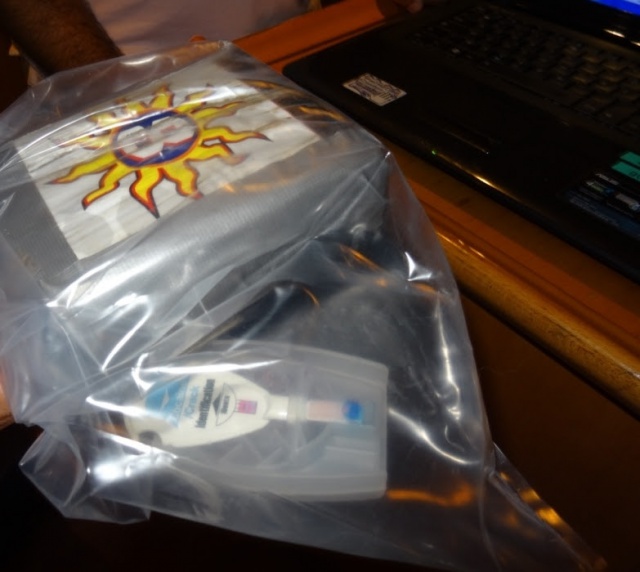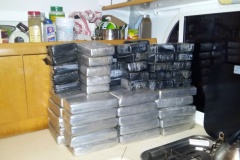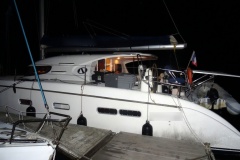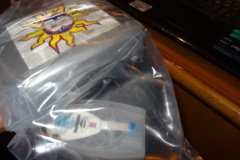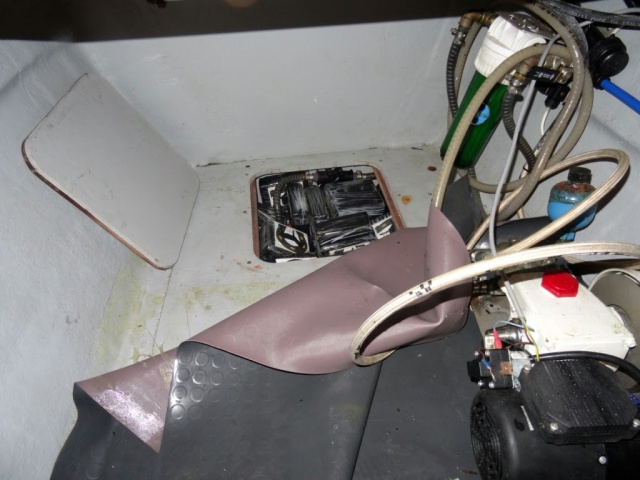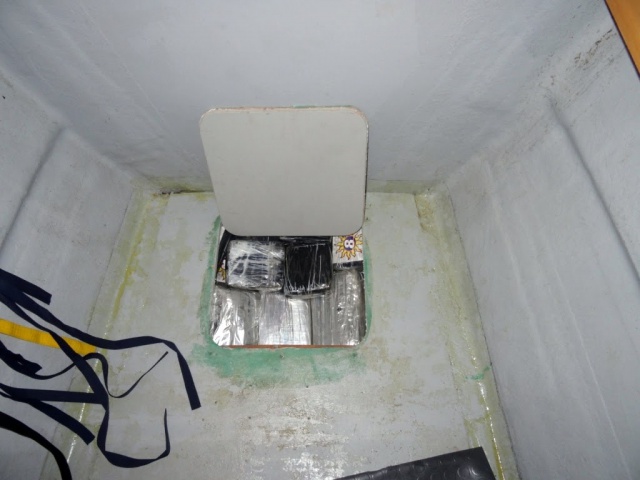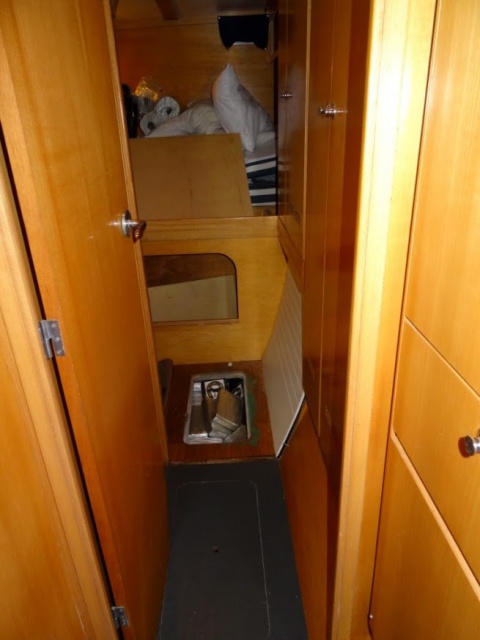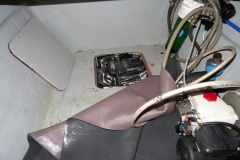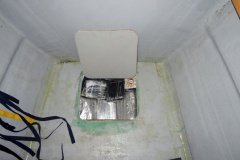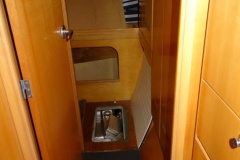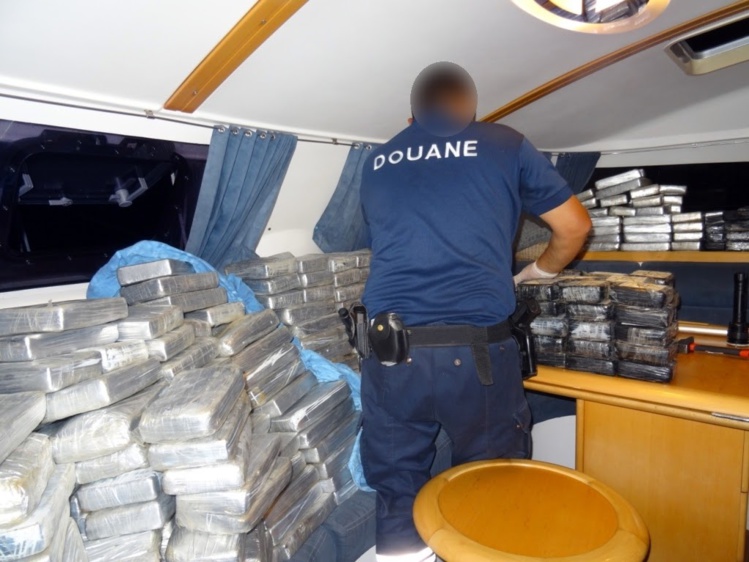
Pictures of the seizure were published this week, a week after the Mojito – the second catamaran – was searched in Tahiti February the 23rd. Loafs and loafs of cocaine are seen being extracted from the guts of the boat: they ended up with 809 kilograms of white powder. Credits go to Douane Française.
PAPEETE, February 2 - Pictures taken by customs officers on a small sailboat intercepted last week show the huge amount of cocaine that are being transported through the Pacific in inconspicuous cockleshells. Two seizures in Tahiti collected one and a half metric tons (3,300 pounds) of the drug while they were in transit to Australia.
January 21st and 23rd, two sailboats where intercepted by the French army in French Polynesia after a tip by the French secret services. French Polynesia is a huge French maritime territory in the South Pacific, spanning the area of Europe. A lot of space for traffickers to pass incognito, but not this time: 1,438 kilograms (3,236 pounds) of cocaine were found in the operation and four suspects were arrested and transported to mainland France on February the 1st. The prosecutor for the Republic Hervé Leroy told the press that this was "an unprecedented seizure in the South Pacific".
The first boat was captured by the military frigate "Le Prairial" in the international waters north of the Marquesas Islands, the archipelago furthest North of French Polynesia. It transported at least 639 kilograms of cocaine, the amount saved by the naval armed force. The rest sunk with the boat: when the frigate boarded the catamaran, it ended up saving the two Spanish sailors from drowning. They had used dynamite to destroy their own boat to avoid leaving evidence.
Four smugglers incarcerated
The second catamaran was picked up two days later by customs officers at the marina of Arue, in the island of Tahiti, where it was waiting for repairs of one of his motors. The two boats were used to transport the cocaine from South America, presumably to Australia. The tip came from the Direction Nationale du Renseignement et des Enquêtes Douanières (DNRED, the National Directorate of the Intelligence and Customs Investigations, a French intelligence agency) that was investigating a criminal operation specialized in moving drugs across the Pacific. It is unknown at the moment if any other boat from this traffic managed to pass through.
The arrest united the French navy, the DNRED, customs services in French Polynesia and the international network of French customs attachés. The four suspected smugglers, two Spanish, a French and a Panamanian, were incarcerated in Tahiti a week before being transported to Paris, where the Juridiction interrégionale spécialisée (JIRS, judges specialized in international legal cooperation) took on the case. The suspects risk 30 years of reclusion, 7,5 million euros (8 million dollars) in fines and a huge additional customs fines. In French law, convictions in drug or counterweigh cases include an additional fine amounting to the market value of the products seized. According to a press release by the Economy and Finances Minister, "the street price of the seized narcotics amount to 53 million euros", or 57 million US dollars.
January 21st and 23rd, two sailboats where intercepted by the French army in French Polynesia after a tip by the French secret services. French Polynesia is a huge French maritime territory in the South Pacific, spanning the area of Europe. A lot of space for traffickers to pass incognito, but not this time: 1,438 kilograms (3,236 pounds) of cocaine were found in the operation and four suspects were arrested and transported to mainland France on February the 1st. The prosecutor for the Republic Hervé Leroy told the press that this was "an unprecedented seizure in the South Pacific".
The first boat was captured by the military frigate "Le Prairial" in the international waters north of the Marquesas Islands, the archipelago furthest North of French Polynesia. It transported at least 639 kilograms of cocaine, the amount saved by the naval armed force. The rest sunk with the boat: when the frigate boarded the catamaran, it ended up saving the two Spanish sailors from drowning. They had used dynamite to destroy their own boat to avoid leaving evidence.
Four smugglers incarcerated
The second catamaran was picked up two days later by customs officers at the marina of Arue, in the island of Tahiti, where it was waiting for repairs of one of his motors. The two boats were used to transport the cocaine from South America, presumably to Australia. The tip came from the Direction Nationale du Renseignement et des Enquêtes Douanières (DNRED, the National Directorate of the Intelligence and Customs Investigations, a French intelligence agency) that was investigating a criminal operation specialized in moving drugs across the Pacific. It is unknown at the moment if any other boat from this traffic managed to pass through.
The arrest united the French navy, the DNRED, customs services in French Polynesia and the international network of French customs attachés. The four suspected smugglers, two Spanish, a French and a Panamanian, were incarcerated in Tahiti a week before being transported to Paris, where the Juridiction interrégionale spécialisée (JIRS, judges specialized in international legal cooperation) took on the case. The suspects risk 30 years of reclusion, 7,5 million euros (8 million dollars) in fines and a huge additional customs fines. In French law, convictions in drug or counterweigh cases include an additional fine amounting to the market value of the products seized. According to a press release by the Economy and Finances Minister, "the street price of the seized narcotics amount to 53 million euros", or 57 million US dollars.













